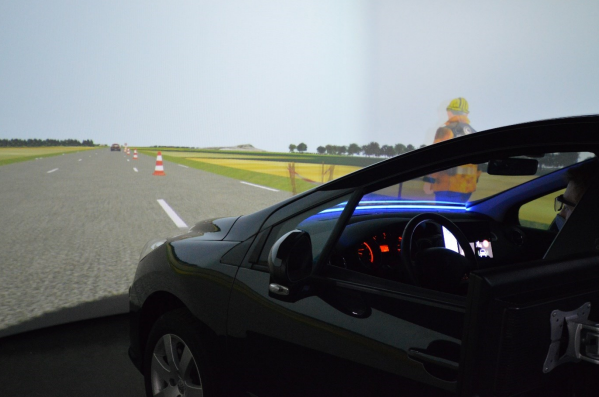Press
Press Releases
-
November 2022
PAsCAL, YOUR GUIDE TO AUTONOMY
The PAsCAL project, funded by the European Commission, is coming to an end after three and a half years with a final result – the “Guide2Autonomy” (G2A). Today's cars already integrate several features of automation (like autopilot and lane assistance) and therewith already function at a level 3 of automation. Connected and Autonomous Vehicles (CAVs) are an inherent part of today’s new mobility and will be even more present in the near future. More is to come. -
November 2022
CONNECTED AND AUTONOMOUS VEHICLES (CAV): PAsCAL PROJECT UNVEILED IN A PODCAST SERIES OF 7 EPISODES ON AIR FROM NOVEMBER 15
Discover the different phases and results obtained by the PAsCAL Project over its three-year work through the voice of its protagonists. Most of today’s vehicles are at least partially connected and equipped with some autonomous functions. This is an increasing trend, until they become totally autonomous driving vehicles. A very near future, indeed, which however raises important questions, such as, in the first place: -
November 2022
PAsCAL Project at TRA Conference 2022
The event, scheduled for November 14-17, 2022 in Lisbon, will be an opportunity to learn about the PAsCAL Project's contribution to defining the implications of the introduction of connected and autonomous vehicles (CAVs) in society TRA 2022 - one of Europe's largest mobility and transport events – scheduled this year for Nov. 14-17 in Lisbon, will host valuable contributions from the PAsCAL project in several sessions.
News
-
 November 2022
November 2022CAV acceptance: simulation experiments results (French)
Hybrid EventAn event will be held UBFC both online and on-site.
Experiment conditions and results will be presented and discussed by researchers and participants to the tests will bring their experience to the discussion.
Attendees in presence will be given the opportunity to visit the simulation platforms.
Agenda:
Introduction to CAVs
Presentation of XP1 and its results
Tesimony of a XP1 volunteer participant
Presentation of XP2 and its results
Q/A
Speakers of the event:
Maxime Larique
Nicolas… -
NewsNovember 2022
PAsCAL at the TRA 2022 In Lisbon
News postPAsCAL will showcase its activities and results at the TRA 2022, which is taking place in Lisbon from today till Thursday 17th.
Here is when you may follow us:
Monday 14 November at 17-18.30
Poster Pitch Presentations: Smart Solutions and society700 Designing CAVs with vulnerable travellers in mind: Requirements to bridge the gap to full accessibility / Friederike L. Kühl, Etelätär Innovation, Estonia
Tuesday 15 November at 8.30-10
Podium presentations: Connected and Automated Multimodal… -
NewsOctober 2022
HOW DO WE WILL INCREASE ACCEPTANCE OF AUTONOMOUS VEHICLES? PASCAL PROJECT SHOWS YOU HOW!
EventCELEBRATING THE ACHIEVEMENTS OF PASCAL
For more than 3 years, H2020 PAsCAL project aimed at enhancing driver behaviour and Public Acceptance of Connected and Autonomous vehicLes.
PAsCAL’s ultimate goal is to create a“Guide2Autonomy” (G2A), a set of guidelines and recommendations aimed at accelerating user-friendly evolution of connected automated vehicles and transport systems.
You are invited to presentations and discussions taking place in Belval that kick off at 17:00 on October…